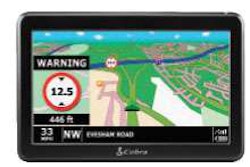Many owner-operators would probably file their International Fuel Tax Agreement (IFTA) tax reporting process under the “necessary evil” heading. It’s tedious, and penalties apply for not filing. Fortunately, says Tennessee-based independent Michael Goodman, “doing your IFTA isn’t all that complicated, but it is time-consuming, especially if you wait until the end of the quarter to do anything.”
IFTA is all about record-keeping – tracking your truck’s average mpg and making correct notes of the number of gallons of fuel you buy, where you buy it and how many miles you run in any given state. You report all of this to the IFTA office in the state where you’re registered, and IFTA calculates the tax you owe to each state. It also redistributes the tax you’ve already paid at the pump to more closely reflect the miles you drove in a state.
Before IFTA was fully entrenched in the mid-90s, says 40-year industry veteran and owner-operator Gil Johnson, “you had to report to each individual state” and send in what you owed or request your refund if you overpaid – likewise to each individual state you ran in. It consumed a lot of stamps – and time. Particularly head-aching was the wait on states to refund you.
A single reporting state simplified the process, it didn’t make for a foolproof system. Because tax owed is based on average fuel mileage, “there is still an element of error in your real mileage,” says Goodman.
“It’s a lot easier now,” Johnson says. “They’re still robbing us, of course. But they’ve learned how to pick our pockets so we don’t even feel it.”
To get started, an independent, non-leased owner-operator sets up an IFTA account with his base state by filling out a form and sending it in. Some states have online applications and even online-reporting options. Johnson, for instance, lauds the Virginia Department of Motor Vehicle’s online filing program, which does the calculations for you after you input your numbers. (Visit DMVnow.com, click “Motor Carrier Services.”)
Idaho independent Randy Cox, whose base state doesn’t have an online reporting option, built his own spreadsheet for calculating his IFTA miles, as has Michael Goodman. Both have embedded the calculations spelled out on the IFTA Form 150 into the spreadsheet cells to allow for easy computing.
Keeping accurate records and staying abreast of quarterly tax changes in states is key to making this system work. State updates are typically sent out to all IFTA account holders, but monitoring the main IFTA site (www.iftach.org) is advisable.
Owner-operators buying the majority of their fuel in high-tax states and running a majority of miles in lower tax states will be due a refund. The opposite is true. “We fill up a lot in Missouri and Wyoming,” says Cox, “which has the lowest tax rate of all the states. I usually owe a little bit. I’m down to one truck now, so in a quarter we might owe $100 or $200.”










